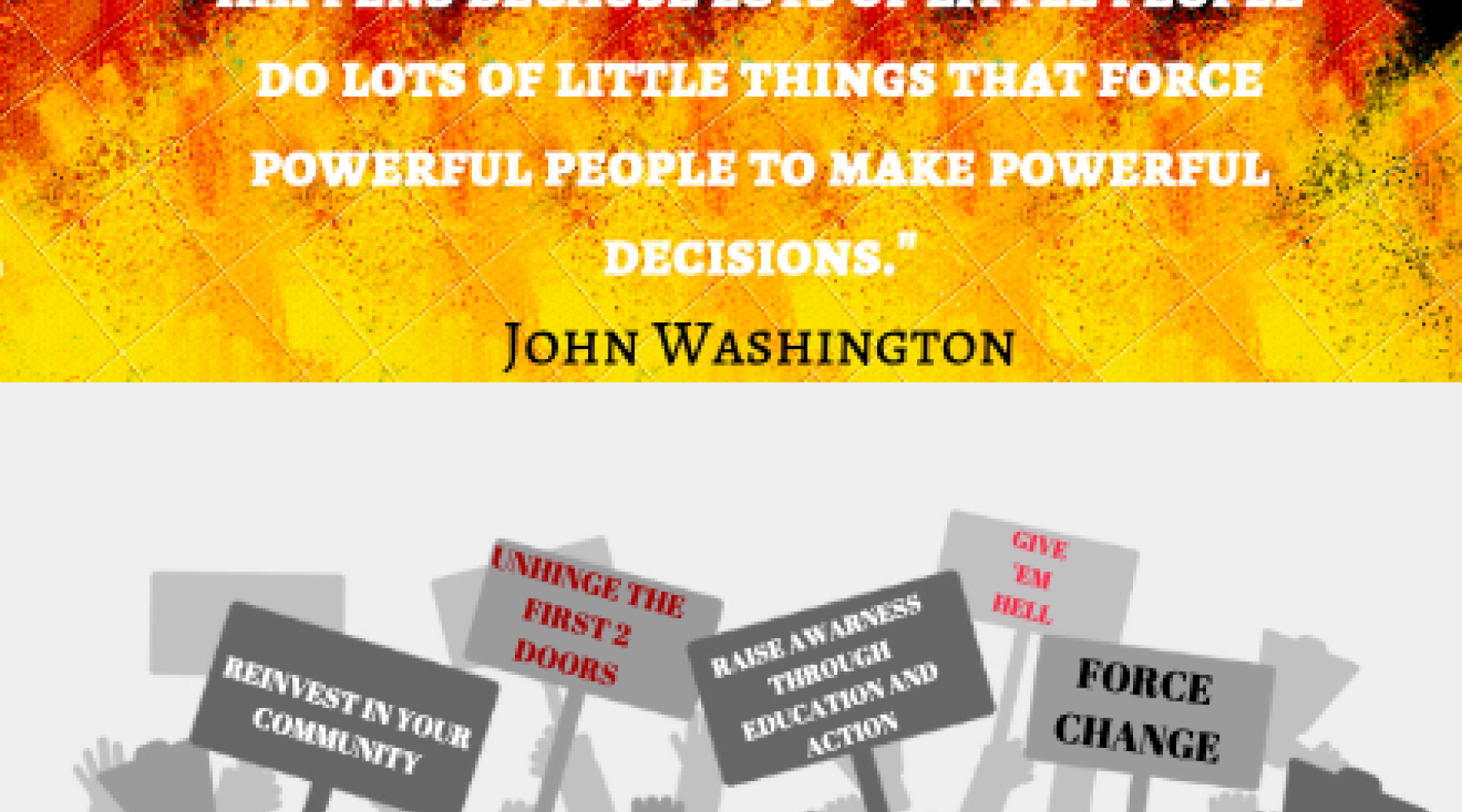
we ALL can!
As I sit and reflect upon my experience on the High Road, I can't help but think about how we live in a time where false realities and false securities are the only way that we interpret truth. Truth; our system isn't broken, it functions the way it was created to function. Truth; a community can be aided to its detriment. Truth; education is just as important as action. Lie; our system needs to be fixed by people with privilege taking action. This week in a meeting with John Washington, the co-director of organizing at PUSH Buffalo, he said something profound. "Change doesn't happen because powerful people sit in their office and make powerful decisions. Change happens because lots of little people do lots of little things that force powerful people to make powerful decisions. Abraham Lincoln did not free the slaves, the slaves freed the slaves through sacrifice." I am in complete awe of, and agreement with, this idea.
In today's day and age we have three situations that I like to think of as a series of closed doors partitioning a long corridor of movement organizing. The first door you will stumble upon is the people whose false realities have caused them to believe that our system is fair and we need to work within it to get where we want to be. This mindset includes barriers to change such as the beliefs that anyone can get rich quick, public assistance programs are enough, or that after-school programs fail because the students lack commitment. The second door is the people who understand that solutions must be created outside of the realms of the current system, but whose false realities have caused them to believe, that there is no true way to accomplish change without a leader change agent and the approval of powerful people. This mindset includes barriers to change such as the beliefs that raising awareness is not enough, signing petitions is pointless, and that true impact can't come from the simple act of dreaming. The third and final door is the people who believe precisely what John said. They are the believers in focused education rippling to collective action, in pushing the envelope so far that "powerful" people have no choice but to be rendered powerless, in being agents of change without a leadership title attached. These are the people who call for upheaval in our current systems, but also understand the reality that adding value to a community takes time.
This week, I was prompted to write about what movement I am in or helping to create. This was aided by a wonderful quote by Martin Luther King Jr. “All ...are caught in an inescapable network of mutuality, tied in a single garment of destiny . . . I can never be what I ought to be until you are what you ought to be, and you can never be what you ought to be until I am what I ought to be. This is the inter-related structure of reality.” This immediately led me to think about how, because of the false realities we hold as individuals, we are limited in our capacity to be movement makers. Then, I thought about the fact that the first two doors in the corridor have to be unhinged in order for a movement to be at maximum impact. This is the reality that MLK is referring to.
So, by now you are probably wondering what this has to do with my High Road Fellowship with the Cornell Cooperative Extension. While planning the summer programming and setting up internships for the Youth Community Action Network (Youth CAN), I realized that the movement I’m helping to create won’t stick around unless I help cultivate the third door mindset in our students. The movement I am helping to create is one of great importance. I am helping to revolutionize teen leadership through teaching a standard of responsibility surrounding community development and civic duty. This work will not continue, this movement will not catch on if we don’t have successful change agents waiting at the third door in ten years prepared to wave kids through the first and second door who were just like them ten years ago. We need to support the teen leaders of today so that they can become the adult leaders who will come back and advocate for their communities and the movements that are needed to foster the teen leaders of the future.
A. Philip Randolph once said, “There must be no dual standards of justice, no dual rights, privileges, duties, or responsibilities of citizenship. No dual forms of freedom.” In the spirit of erasing duality, or octupuality, I hope to help create a movement for a radical reimagining of the entire accessibility of opportunity for youth. To do this, I guess I’ll start with some little people doing little things.